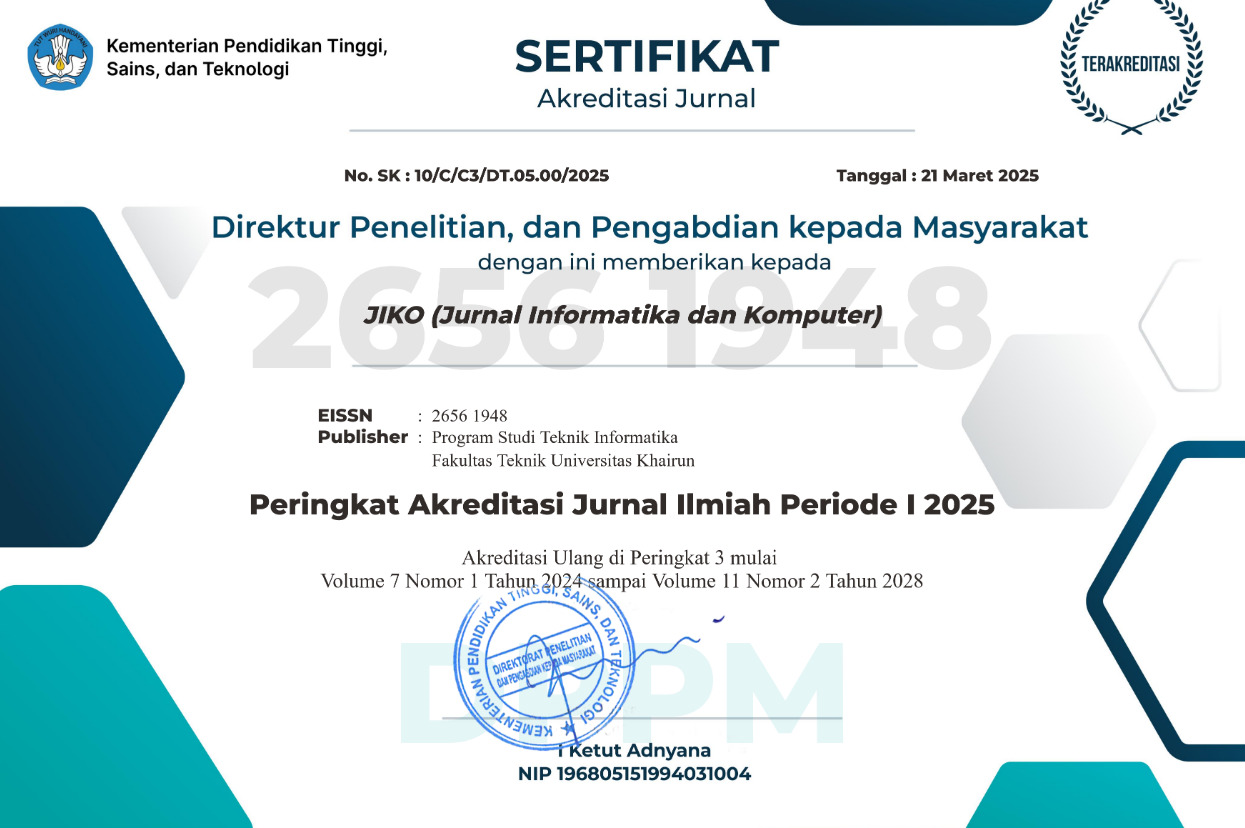DESIGN OF VERTICULTURE PLANT MONITORING AND IRRIGATION SYSTEM USING FUZZY LOGIC AND WIRELESS SENSOR NETWORK
Abstract
Verticulture is a gardening method that addresses land limitations by using a multi-layered vertical planting system. However, there are several issues in verticulture, one of which is providing water based on plant needs. The irrigation of verticulture plants is routinely done every day, either in the morning or during the day. This certainly consumes time and effort for the farmers. Therefore, the objective of this research is to design a monitoring and irrigation system for verticulture plants based on soil moisture sensor data that will be processed using fuzzy logic algorithms and Wireless Sensor Network technology. The result of this research is a system implemented at 16 verticulture planting points. Sixteen sensor nodes successfully read soil moisture data in real time and sent this data to a sink node. The sink node then received and collected the moisture data sent by the sensor nodes. The algorithm used in this system is fuzzy logic, which successfully categorizes the readings from the soil moisture sensors into dry, moist, or wet categories, allowing the system to decide whether to irrigate the plants or not. The monitoring application created successfully displays the soil moisture sensor data as a percentage (%).
Full Text:
PDFDOI: https://doi.org/10.33387/jiko.v8i1.8895
Refbacks
- There are currently no refbacks.











